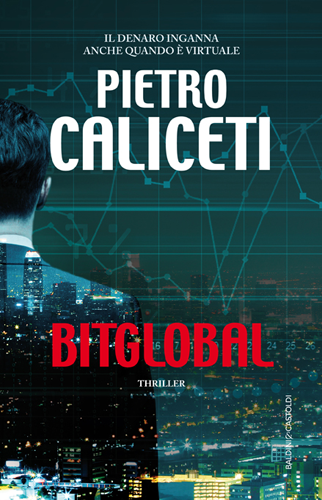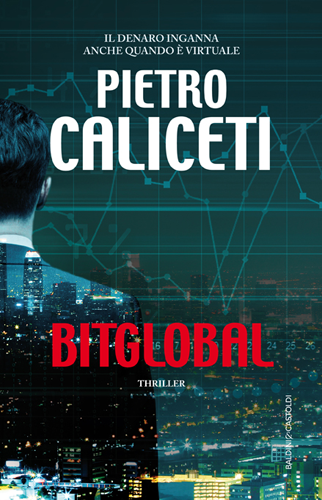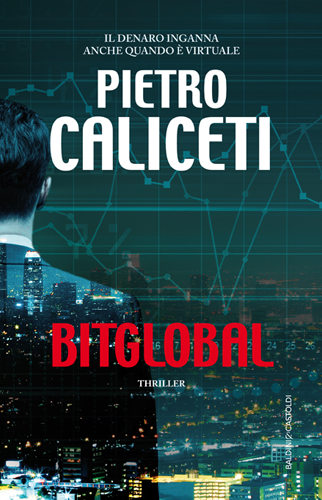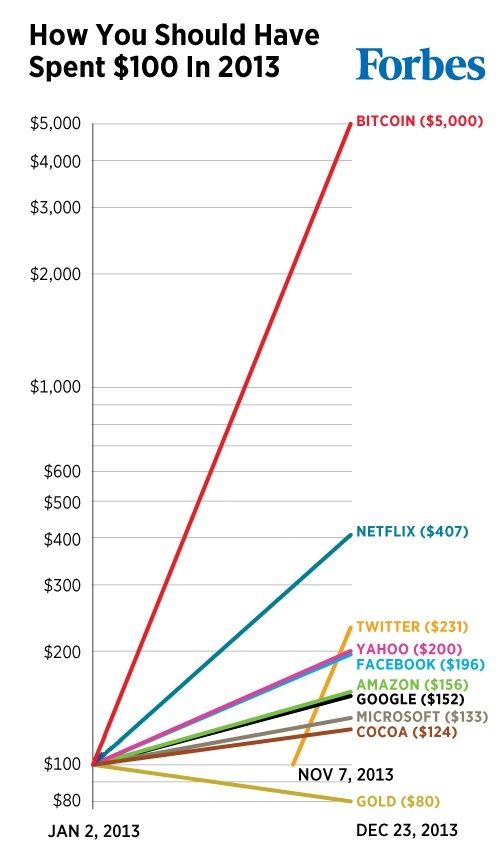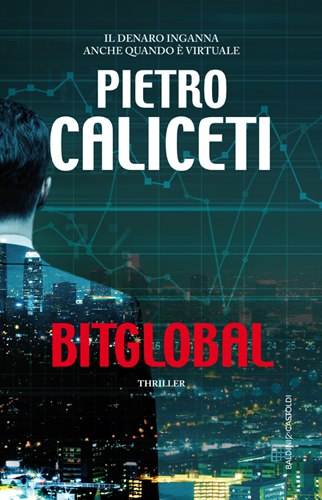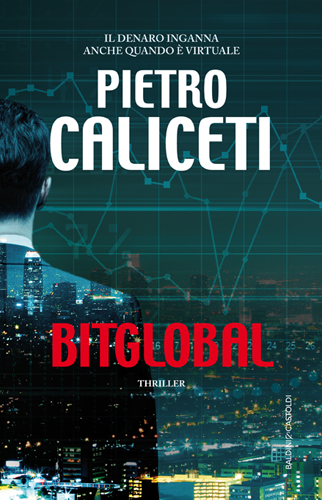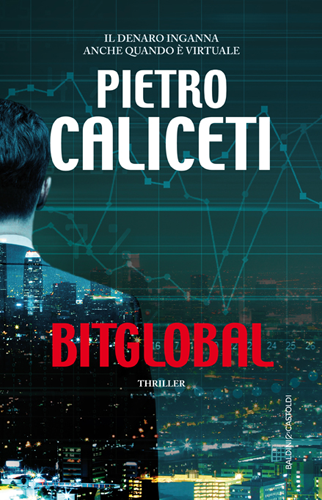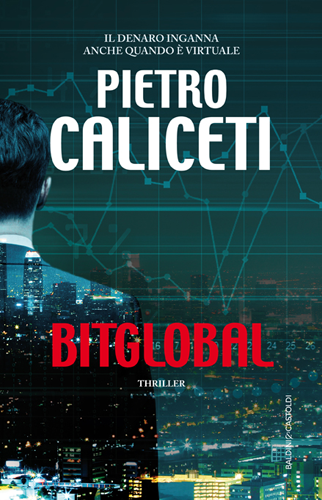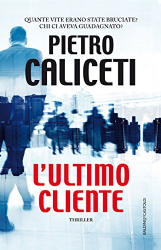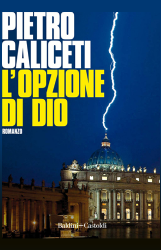
- BitGlobal
- Bitcoin - Historical and Sociological Aspects
- Bitcoin - Technical Aspects
- Bitcoin - The first reactions of Investors
- Bitcoin - The first reactions of Regulators
- Geneva Conference on the World Economy
- Inflation in Ancient Times
- Shavers and Others - The First Scams
BitGlobal
Ludwig Von Mises, The Theory of Money and Credit, Pacific Publishing Studio, 2010
Glynn Davies, A History of Money, University of Wales Press, 2002
Niall Ferguson, The Ascent of Money, Penguin Books, 2009
Jack Weatherford, The History of Money, Three Rivers Press, 1997
Roberto Petrini, Controstoria della moneta, Imprimatur Editore, 2014
Luca Fantacci, La moneta. Storia di un’istituzione mancata, Marsilio, 2005
Massimo Amato, L’enigma della moneta, et al. edizioni, 2012
AA.VV., La teoria della moneta dai classici a Keynes, Liguori, 1981
Giorgio Ruffolo, Testa o croce. Una breve storia della moneta, Einaudi, 2011
Greg Steinmetz, Il creatore di re. Storia vera di Jacob Fugger, Baldini&Castoldi, 2016
Charles Munger-Warren Buffet, La parabola di Basicland e Perché le azioni battono l’oro, Nextam Partners, 2012
Roger Lowenstein, When Genius Failed, Fourth Estate, 2002
Liaquat Ahamed, Lords of Finance, Windmill Books, 2010
Satyajit Das, Traders, Guns & Money, Financial Times Publishing, 2012
Michael Lewis, The Big Short, Rizzoli, 2011
Benjamin Guttmann, Bitcoin - Guida completa, LSWR, 2014
James Cox, Bitcoin and Digital Currencies, Laissez Faire Books, 2013
Paul Vigna- Michael J. Casey, The Age of Cryptocurrency, St. Martin’s Press, 2015
Bitcoin - Historical and Sociological Aspects
Bitcoin - Technical Aspects
Bitcoin - The first reactions of Investors
- Attachments
 (848,758 Kb)
5 of the Biggest Bitcoin Startup Investments of 2013_20.08.14
(848,758 Kb)
5 of the Biggest Bitcoin Startup Investments of 2013_20.08.14
 (348,05 Kb)
Analisi Tecnici di lungo termine sul Prezzo del Bitcoin_05.05.14
(348,05 Kb)
Analisi Tecnici di lungo termine sul Prezzo del Bitcoin_05.05.14
 (121,59 Kb)
Andreessen Invests in Bitcoin 'Wallet' Coinbase at $140 Million Valuation - WSJ_12.12.13
(121,59 Kb)
Andreessen Invests in Bitcoin 'Wallet' Coinbase at $140 Million Valuation - WSJ_12.12.13
 (782,27 Kb)
Bank of America Merrill Lynch_Bitcoin-A First Assessment_05.12.13
(782,27 Kb)
Bank of America Merrill Lynch_Bitcoin-A First Assessment_05.12.13
 (150,08 Kb)
Bitcoin Hedge Funs Multiply As Big Money Sees Opportunity_24.07.14
(150,08 Kb)
Bitcoin Hedge Funs Multiply As Big Money Sees Opportunity_24.07.14
 (604,607 Kb)
Bitcoin Investment Trust_September 2014
(604,607 Kb)
Bitcoin Investment Trust_September 2014
 (150,475 Kb)
Bitcoin IPO Countdown_One of These Five Companies Could Be the First_29.07.14
(150,475 Kb)
Bitcoin IPO Countdown_One of These Five Companies Could Be the First_29.07.14
 (90,035 Kb)
Bitcoin Price May Be Technical_23.03.14
(90,035 Kb)
Bitcoin Price May Be Technical_23.03.14
 (147,061 Kb)
Bitcoin Price Skyrockets as Senat Hearing Concludes_19.11.13
(147,061 Kb)
Bitcoin Price Skyrockets as Senat Hearing Concludes_19.11.13
 (259,954 Kb)
Bitcoin VC Investment This Year Already 30% Higher Than 2013's Total_05.06.14
(259,954 Kb)
Bitcoin VC Investment This Year Already 30% Higher Than 2013's Total_05.06.14
 (266,444 Kb)
Cashless volumes-The war on cash continues_11.03.14
(266,444 Kb)
Cashless volumes-The war on cash continues_11.03.14
 (71,947 Kb)
eMarketer_Global B2C Ecommerce Sales to Hit $1.5 Trillion Driven by Growth in Emerging Markets_03.02.14
(71,947 Kb)
eMarketer_Global B2C Ecommerce Sales to Hit $1.5 Trillion Driven by Growth in Emerging Markets_03.02.14
 (245,985 Kb)
How the Growing Bitcoin Market Will Cause a $3.4 Trillion Disruption_23.07.14
(245,985 Kb)
How the Growing Bitcoin Market Will Cause a $3.4 Trillion Disruption_23.07.14
 (1,745 Mb)
KPMG_The Changing World of Money_January 2015
(1,745 Mb)
KPMG_The Changing World of Money_January 2015
 (110,112 Kb)
MasterCard Study Reveals the Rapidly Growing Cashless Economies_23.09.13
(110,112 Kb)
MasterCard Study Reveals the Rapidly Growing Cashless Economies_23.09.13
 (592,291 Kb)
MasterCardAdvisors-Measuring Progress Towards a Cashless Society_August 2014
(592,291 Kb)
MasterCardAdvisors-Measuring Progress Towards a Cashless Society_August 2014
 (375,084 Kb)
MIT Bitcoin Trading Simulation Yields Profit of 89% in 50 Days_14.10.14
(375,084 Kb)
MIT Bitcoin Trading Simulation Yields Profit of 89% in 50 Days_14.10.14
 (483,918 Kb)
Perchè investire in Bitcoin_06.09.14
(483,918 Kb)
Perchè investire in Bitcoin_06.09.14
 (94,965 Kb)
Scienzati del MIT sviluppano un algoritmo in grado di prevedere il prezzo del Bitcoin_19.11.14
(94,965 Kb)
Scienzati del MIT sviluppano un algoritmo in grado di prevedere il prezzo del Bitcoin_19.11.14
 (290,638 Kb)
This week in bitcoin_VC investment is up and shows no sign of stopping after Xapo_11.07.14
(290,638 Kb)
This week in bitcoin_VC investment is up and shows no sign of stopping after Xapo_11.07.14
 (361,125 Kb)
Will Bitcoin Venture Capital Investment Reach $300 Million in 2014_01.04.14
(361,125 Kb)
Will Bitcoin Venture Capital Investment Reach $300 Million in 2014_01.04.14
 (191,665 Kb)
Winklevoss Interview_Bitcoin Payment System Worth $400 Billion_04.08.14
(191,665 Kb)
Winklevoss Interview_Bitcoin Payment System Worth $400 Billion_04.08.14
 (216,941 Kb)
Winklevoss twins file for $20 million Bitcoin IPO_02.07.13
(216,941 Kb)
Winklevoss twins file for $20 million Bitcoin IPO_02.07.13
Bitcoin - The first reactions of Regulators
- Attachments
 (125,536 Kb)
Are Bitcoins the Criminal's Best Friend_18.11.13
(125,536 Kb)
Are Bitcoins the Criminal's Best Friend_18.11.13
 (80,324 Kb)
Bank of England sees Bitcoin fraud risk deflation danger_11.09.14
(80,324 Kb)
Bank of England sees Bitcoin fraud risk deflation danger_11.09.14
 (112,986 Kb)
Ben Bernanke's letter to Congress_Bitcoin and other virtual currencies may hold long-term promise_18.11.13
(112,986 Kb)
Ben Bernanke's letter to Congress_Bitcoin and other virtual currencies may hold long-term promise_18.11.13
 (318,188 Kb)
Bernanke never said that 'Bitcoin may hold long-term promise' and other bitcoin quotes corrected with sources_17.01.14
(318,188 Kb)
Bernanke never said that 'Bitcoin may hold long-term promise' and other bitcoin quotes corrected with sources_17.01.14
 (148,333 Kb)
Bitcoin arriva su Paypal_Bankitalia 'attenti al riciclaggio'_02.10.14
(148,333 Kb)
Bitcoin arriva su Paypal_Bankitalia 'attenti al riciclaggio'_02.10.14
 (113,636 Kb)
Bitcoin Crosses $700 As Senate Hearing Wraps_18.11.13
(113,636 Kb)
Bitcoin Crosses $700 As Senate Hearing Wraps_18.11.13
 (214,388 Kb)
Bitcoin investment vehicles beware_the SEC is watching_20.10.14
(214,388 Kb)
Bitcoin investment vehicles beware_the SEC is watching_20.10.14
 (189,826 Kb)
Canada_Uno studio sulla regolamentazione del Bitcoin_06.06.14
(189,826 Kb)
Canada_Uno studio sulla regolamentazione del Bitcoin_06.06.14
 (662,995 Kb)
Coining Bitcoin's 'Legal-Bits'_Examining the Regulatory Framework for Bitcoin and Virtual Currencies_Harvard Journal of Law & Technolo~1
(662,995 Kb)
Coining Bitcoin's 'Legal-Bits'_Examining the Regulatory Framework for Bitcoin and Virtual Currencies_Harvard Journal of Law & Technolo~1
 (98,401 Kb)
EBA's Warning to consumers on virtual currencies_12.12.13
(98,401 Kb)
EBA's Warning to consumers on virtual currencies_12.12.13
 (80,93 Kb)
Federal Regulators Aren't Ready To Crack Down On Bitcoin Because They Still Don't Really Know What It Is_27.08.13
(80,93 Kb)
Federal Regulators Aren't Ready To Crack Down On Bitcoin Because They Still Don't Really Know What It Is_27.08.13
 (199,629 Kb)
Here's How Bitcoin Charmed Washington_21.11.13
(199,629 Kb)
Here's How Bitcoin Charmed Washington_21.11.13
 (175,692 Kb)
In the Murky World of Bitcoin Fraud Is Quicker Than the Law_05.12.13
(175,692 Kb)
In the Murky World of Bitcoin Fraud Is Quicker Than the Law_05.12.13
 (521,501 Kb)
Legalilty of Bitcoin by country_Wikipedia_01.02.15
(521,501 Kb)
Legalilty of Bitcoin by country_Wikipedia_01.02.15
 (136,042 Kb)
Private Equity_Most Fund Managers Avoiding General Solicitation_17.09.14
(136,042 Kb)
Private Equity_Most Fund Managers Avoiding General Solicitation_17.09.14
 (137,611 Kb)
Senate Bitcoin Hearing Discusses Legitimacy and Challenges of Virtual Currencies_19.11.13
(137,611 Kb)
Senate Bitcoin Hearing Discusses Legitimacy and Challenges of Virtual Currencies_19.11.13
 (194,668 Kb)
The Feds Embraced Bitcoin in the First-Ever Congressional Hearing on Virtual Currency_18.11.13
(194,668 Kb)
The Feds Embraced Bitcoin in the First-Ever Congressional Hearing on Virtual Currency_18.11.13
 (282,177 Kb)
The strange convergence of Bernanke Hayek and Bitcoin_21.11.13
(282,177 Kb)
The strange convergence of Bernanke Hayek and Bitcoin_21.11.13
 (179,824 Kb)
Why is it so hard to regulate Bitcoin_25.06.14
(179,824 Kb)
Why is it so hard to regulate Bitcoin_25.06.14
Shavers and Others - The First Scams
- Attachments
 (140,322 Kb)
Bitcoin confidence game is a Ponzi scheme for the 21st century_11.03.14
(140,322 Kb)
Bitcoin confidence game is a Ponzi scheme for the 21st century_11.03.14
 (136,549 Kb)
Bitcoin is ripe for fraud and Ponzi schemes warns SEC_07.05.14
(136,549 Kb)
Bitcoin is ripe for fraud and Ponzi schemes warns SEC_07.05.14
 (102,379 Kb)
Bitcoin 'Pirate' Scandal_SEC steps in amid allegations that the whole thing was a Ponzi scheme_27.09.12
(102,379 Kb)
Bitcoin 'Pirate' Scandal_SEC steps in amid allegations that the whole thing was a Ponzi scheme_27.09.12
 (134,066 Kb)
Bitcoin Savings & Trust Comes Up $40 Million Short On The Trust Part_25.09.14
(134,066 Kb)
Bitcoin Savings & Trust Comes Up $40 Million Short On The Trust Part_25.09.14
 (189,489 Kb)
Caso Shavers_Atto Introduttivo_23.07.13
(189,489 Kb)
Caso Shavers_Atto Introduttivo_23.07.13
 (115,517 Kb)
Caso Shavers_Giudizio Finale_18.09.14
(115,517 Kb)
Caso Shavers_Giudizio Finale_18.09.14
 (595,804 Kb)
Caso Shavers_Memorandum e Ordine 18.09.14
(595,804 Kb)
Caso Shavers_Memorandum e Ordine 18.09.14
 (101,752 Kb)
Caso Shavers_Memorandum_06.08.13
(101,752 Kb)
Caso Shavers_Memorandum_06.08.13
 (119,878 Kb)
Hong Kong's MyCoin Disappears With Up to $387 Million Reports Claim_09.02.15
(119,878 Kb)
Hong Kong's MyCoin Disappears With Up to $387 Million Reports Claim_09.02.15
 (1,199 Mb)
List of Major Bitcoin Heists Thefts Hacks Scams and Losses_12.08.14
(1,199 Mb)
List of Major Bitcoin Heists Thefts Hacks Scams and Losses_12.08.14
 (67,11 Kb)
SEC Charges Texas Man With Running Bitcoin-Denominated Ponzi Scheme_23.07.13
(67,11 Kb)
SEC Charges Texas Man With Running Bitcoin-Denominated Ponzi Scheme_23.07.13
 (151,241 Kb)
SEC Investors Alert_Ponzi Schemes Using Virtual Currencies_7_2013
(151,241 Kb)
SEC Investors Alert_Ponzi Schemes Using Virtual Currencies_7_2013
 (637,762 Kb)
The Postmodern Ponzi Scheme_Empirical Analysis of High-Yield Investment Programs_02.01.12
(637,762 Kb)
The Postmodern Ponzi Scheme_Empirical Analysis of High-Yield Investment Programs_02.01.12
 (143,356 Kb)
When bitcoins go bad_4 stories of fraud hacking and digital currencies_26.11.13
(143,356 Kb)
When bitcoins go bad_4 stories of fraud hacking and digital currencies_26.11.13
- For a long time I had never thought to do anything but the lawyer. Work absorbed me, pleased me, gratified me. Then, starting from 2008, something began to creak. In America the subprime crisis had exploded. It was a long wave, like a tsumani, th
- As I said in some interviews, L’Opzione di Dio wanted to be somehow an attempt to re-write The Brothers Karamazov in a contemporary key. Its fundamental literary references are thus Dostoevskij and Pascal’s Pensées, whom also Dostoevskij owed muc



